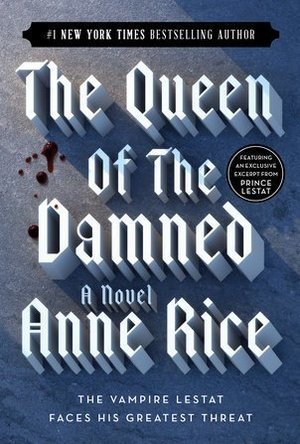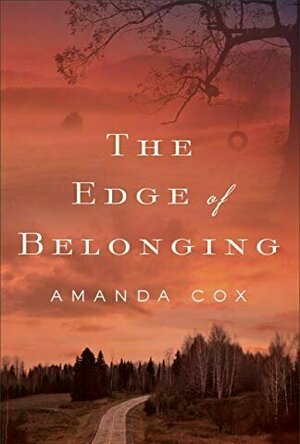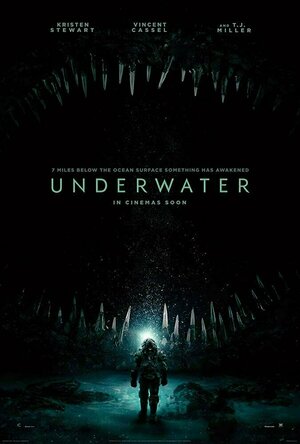I can't quite decide how to classify this book, although I kept telling people I was reading a crime thriller. But it's a little more than that, as Darren works to prevent crime by thwarting gang efforts in a place called The Orchard. He manages to do this by using a suit specifically designed to enhance his own abilities multiple times over, making him faster, stronger, and ultimately bullet-proof. The resulting encounters with criminals are sometimes hilarious when they see that they're basically fighting Iron Man.
I thoroughly enjoyed this book. There were aspects that got a little technical and went a little over my head, when Darren and Adam were explaining how they created the suit, what all software/technology went into it, etc., but it was still understandable enough to keep me in the story. Aside from that part, I was deeply engrossed in how Darren could pull of these feats, why he did it (when it got that part), and the little mini-stories from the perspective of the would-be victims, had he not stepped in to help. And I found myself reading the introduction over and over again (I even got my husband to read it), because I was just so fascinated at what can be done with technology now!! It really grabbed my attention, the first chapter sucked me in, and the rest of the book made sure to never let me go.
Finally, while not a major part, there's an exchange between Darren and Corrine about the difference between a justice system and a legal system, as well as one between Darren and a judge that involves such things as the psychology of the courtroom and law. I found both these discussions very interesting, as I majored in Forensic Psychology, and the term "justice system" was used quite often, often interchangeably with "legal system." To hear the two explained in stark contrast to one another and how they differ was something that really added to the story and bolstered Darren's cause, in my opinion. And to hear the judge talk about the theatrics of the courtroom and how it's all ritualistic and intimidating really got me thinking, as well. Kudos to the author for throwing those two bits of dialogue in the story.
5 stars, and I'd recommend this to anyone who likes a good off-the-beaten-path superhero story =)
BookblogbyCari (345 KP) rated What Did I Do? in Books
Nov 4, 2018
This is an odd book, but despite its haphazard beginnings, by the three-quarter mark I was hooked and could not put it down!
The first chapter runs from the viewpoint of the somewhat mentally disturbed Kristin, who has recently immigrated to Sweden following the death of her husband, Brandon, which she suspects that she caused (cause of death being an allergic reaction to nuts).
The following chapter runs from the viewpoint of Frank, who has just returned from a holiday with his wife, Birgitta, to learn that his son, Anders, has been murdered. The couple suspect that Anders was murdered by his sister, their daughter Sofia.
Frank hires a private to track down Sofia, who, it transpires, is Kristin by another name. Frank and Birgitta also immigrate to Sweden. Despite Frank’s anger at Sofia, he wants to confront her personally rather than hand her over to the police.
Interspersed between chapters on Kristen and Frank, are chapters taken from the viewpoint of a young woman who finds herself the victim of an organisation of pimps, and feels trapped in an unwanted lifestyle. For a long time in the book, it was hard to see how this had any relevance to Kristen’s or Frank’s story, but it all came together at the three quarter point, and the action heated up as characters found each other.
While reading the earlier chapters, I had a strong feeling that there had been a lot going on behind the scenes and that characters were often unaware of the whole story.
There were some characters and elements to the story that, although they were critical to the plot, often felt unnecessary, such as Kristen’s therapy sessions, and chapters from the viewpoint of a neighbour.
What was good about this book was the believability of the story telling, which I imagine would be hard to pull off, given that the subject matter includes murders and sex trafficking.
I had chosen this book hoping it would be like Memory Box by Eva Lesko Natiello where the protagonist uncovers clue after mysterious clue, but in this book the clues were few and far between.
I don’t normally make educated guesses as to who is the culprit in a mystery, but on this occasion I did and I was partly right (no spoilers).
The story’s ending and epilogue left me feeling satisfied that justice had been served.
Overall I did enjoy the book, but I’m not inclined to read more from the author. Although the writing kept me interested, it felt like reading 3 different stories that barely linked together.

Applied Pathophysiology: A Conceptual Approach to the Mechanisms of Disease
Carie A. Braun and Cindy M. Anderson
Book
Emphasizing application of knowledge, active learning strategies, critical thinking, and...

The Queen of the Damned (The Vampire Chronicles, #3)
Book
In 1976, a uniquely seductive world of vampires was unveiled in the now-classic Interview with the...
TravelersWife4Life (31 KP) rated The Edge of Belonging in Books
Feb 24, 2021
The Edge of Belonging by Amanda Cox was like a breath of fresh air amid uncertain times that cause you to reflect inward to who you really are. It is listed as a dual timeline, but I think it reads just like a complete story of getting to know a person from beginning to end, with some very thought-provoking moments.
<b>“What if this whole thing is really about finding your missing pieces?”</b>
This book and the characters in it made me go on a roller-coaster of thoughts, emotions, and feelings. I was hooked from the very beginning and read the book in one sitting because it was so good. I loved how Amanda Cox used the dialogue to make me feel as if I were in the story observing everything unfolding. She also used everyday life situations to convey hope for every situation tastefully touching on topics like depression, abandonment, abuse, PTSD, and death. It was masterfully done and quite hard to believe that this was her debut novel! (I cannot imagine what she will write after getting “practice” under her belt). The Edge of Belonging has some of the most poignant moments in it that I have ever read before in a book. Ivy Rose, Harvey James, Reese, and Pearl brought to light one of life’s most resounding questions… Who are you?
<b>“You are Braver than you know. And more Loved than you realize.”</b>
The plot is a dual timeline, I do not always like them because they can be kind of wonky, but wow, this one was done to perfection. It was really like looking through a window and watching the characters interact on the other side, definitely one of the best (if not the best) dual timelines I have ever had the pleasure of reading before. Interwoven with great landscape descriptions and interesting background on all the characters plus, the 20 years kept secrets… well this book is one I will be recommending for a long time to come.
While diving deep into the different characters' lives Amanda Cox managed to give many happy endings and bring you on a journey of discovery that I think everyone can relate to and enjoy. I highly recommend this book and give it 5 stars. Great job on your first book Amanda Cox, I cannot wait to see what you write next!
*I volunteered to read this book in return for my honest feedback. The thoughts and opinions expressed within are my own.
Sarah (7800 KP) rated Underwater (2020) in Movies
Oct 18, 2020
I’ll start by admitting that I’ve never been a big fan of Kristen Stewart, with Twilight to thank for this rather negative opinion. However I’ve come to realise she’s actually a decent actress, especially in action packed films, and this really helped me to enjoy Underwater a lot more than I was expecting.
The action in this is virtually nonstop. There’s no lengthy or drawn out introductions, we’re submerged (literally) into the main plot of this film less than 5 minutes in and it continues in this vein throughout. It’s an edge of your seat thrill ride that’s tense and gripping, and there isn’t a dull moment. The horror aspect is rather well done and paired with the unknown and often claustrophobic circumstances the characters find them in and the very good score, it becomes quite a scary and nerve wracking film. The plot is decent and whilst the reveal on the cause of the earthquake isn’t entirely unpredictable, it still proves to be great entertaining.
Sadly despite my gushing, Underwater isn’t perfect. The biggest problem with it is the CGI and special effects. The props and set design themselves look good, but they’re let down when we’re shown these huge CGI underwater scenes that are meant to look impressive but instead look horrendous. I’d be interested to know how this looked on the big screen, but in a home setup it looks decidedly dodgy. And slow motion every time something explodes is cringeworthy.
Underwater also suffers from your typical survival film clichés. The plot itself is very typical of a survival film, and paired with ridiculous and predictable actions by underdeveloped characters, it lets it down. The cast too are also let down by the cliched characters, and even Vincent Cassel and John Gallagher Jnr are given little to work with. The only character that has had any development whatsoever is Stewart’s Nora, who is a decent and fairly likeable protagonist.
I really wish Underwater had a little more money thrown at it. If they had dramatically improved the CGI then I think this would’ve made for a cracking good sci-if/horror. The critical reception for this hasn’t been great, which surprises me as overall this is a very tense, nerve wracking and sometimes scary film that just falls short of being very good.

Period tracker Period calendar
Health & Fitness and Utilities
App
Period Calendar tracks and predicts your period, ovulation and fertile window, shows your Pregnancy...
Maddog (122 KP) rated Joker (2019) in Movies
May 16, 2020
So out of all the films he's been involved with this is Joker’s first stand alone movie which I was so excited for. Joker’s back story has of course been talked about for many years as most of his life is unknown and simply everyone is guessing. The film 'Joker' decides to go down the back story of mental health which many believe is the cause of his behaviour.
The film starts off very simple, so much so that you believe you could be watching any other film. You get little hints of the Joker’s mental health issues and how people see him (at one point I felt sorry for him because of everything happening in the movie). As the movie progresses your then thrown into the world and mindset of the Joker himself; you start to see more mental health issues and start to notice the Joker that everyone knows. As the film progresses towards to the end, it creates many moments that leave you questioning your own sanity as you start to wonder what the truth is.
Yes this film has it flaws; it wasn’t quite the stand alone I was hoping for as I thought maybe a lesser well known reason would have been chosen but still the film did well with its chosen plot.
Yes it has 'that song' but in reality I feel it actually helps with the story that's happening. Here's my take; I feel that the song is in fact a hidden message. The song was performed by someone many would call 'a monster' so in truth is this not fitting for Joker? I believe that the playing of this song is Joker showing the audience in only true Joker fashion that 'the monster' he has hidden for so long is finally free.
There are many things I could say about this film but I feel I'd be here forever. In truth, many people don't enjoy this film for whatever their reason, or only enjoy parts. However, I enjoyed all of the film and everything it stands for or represents. As I said at the beginning I'm a Joker fan so this may seem one sided. I will say this though no matter what you may think about the film it’s 100% worth a watch, we can all take something away from this film, even if it's just how well done the movie was made. put together and portrayed.

mi Flight Radar Lite
Travel and Navigation
App
mi Flight Radar turns your iPhone or iPad in to your own personal air traffic radar or flight...

CARS MOD FOR MINECRAFT PC GAME
Catalogs and Utilities
App
ADD CARS, PLANES, BOATS, DIRT BIKE, AND MORE TO MINECRAFT! This is one of the best car mods which...




